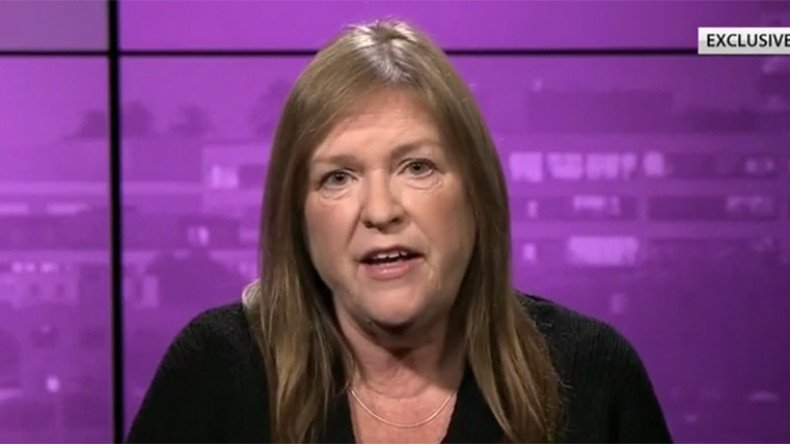Clinton’s talking points ‘exactly Bernie’s’, but ‘devil is in detail’ - Jane Sanders

Jane Sanders is calling out her husband's opponent Hillary Clinton for echoing "Bernie's" platform as his campaign adjusts its strategy with all eyes on the California primary in early June.
Speaking to RT America's Ed Shultz, the former university president remarked how Clinton sounds just like the Vermont Senator when asked about the former Secretary of State’s “almost startling” speech.
“The talking points are exactly Bernie’s talking points and we’ve known for the last year that she’s moved much further to the left, in terms of campaign rhetoric,” Jane Sanders said.
Her sentiments were mirrored by public intellectual Noam Chomsky who told Democracy Now (DN) that Sanders has “pressed the mainstream Democrats a little bit towards the progressive side - you see that in Clinton’s statements.”
However, Jane Sanders says “the devil is in the details” and there are “very strong differences” on every one of those talking points, "if you read the small print".
“These two candidates will bring the country in two different directions,” she said. “[Hillary Clinton’s] very much for fracking. She fought for it, as secretary of state, and [Bernie Sanders is] very much against it. He’s been very against all the trade policies that have hurt manufacturing, and lost us millions of jobs.”
#Fracking referendum? Pennsylvania primary offers choice for Democratic voters https://t.co/426zGhs8fppic.twitter.com/RUPrWs4Lrw
— RT America (@RT_America) April 25, 2016
Sanders also pointed to differences in both candidates’ plans for minimum wage increases.
Things got tense between the two campaigns during the New York primary, earning some criticism from Clinton surrogates.
“If he tones down the rhetoric and continues to fight, he’ll go out on a very high note with a lot of people, including me, thinking he did a great service to American democracy,” former Pennsylvania Governor Ed Rendell told the New York Times. “But if he keeps it up, it could be brutal.”
“I think the Clinton campaign and the Democratic establishment wants him to all of a sudden become, ‘Oh, we’re all in this together, we’re just going against the Republicans’,” Jane Sanders said. “The tone from Bernie’s campaign has been so civil for the last year. We’re not changing the tone. It got a little bit testy in New York, that’s true, but that was a blip, but he’s back to focusing completely on the issues, and he’s contrasting the views with Secretary Clinton.”
‘Good morning disenfranchisement’: New York primary tainted by voting irregularitieshttps://t.co/EPSvzldo5dpic.twitter.com/B1yI9TwOhO
— RT America (@RT_America) April 19, 2016
Following the announcement that his campaign would reduce staff, she explained that with only a few primary states remaining, the plan was always to streamline.
“Campaigns are a bell curve: you start very small and then you ramp up and have the most in the middle,” she said.
Cruz, Sanders reveal sweeping changes after East Coast Tuesday losseshttps://t.co/TDOjOv2ymGpic.twitter.com/ArXfdMGs51
— RT America (@RT_America) April 28, 2016
Noam Chomsky countered the "interesting characterization" of Sanders as “radical and extremist” by describing him as a “mainstream New Deal Democrat" on DN.
The MIT professor emeritus pointed out that Sanders’ ideas on taxes and healthcare are supported by the majority of the American public and have been for a long time.
“During the Reagan years, about 70 percent of the population thought that national healthcare should be in the Constitution because it’s such an obvious right, and in fact, about 40 percent of the population thought that it was in the Constitution,” he noted.
He pointed out that dismissing Sanders as a radical is an indication of how the spectrum shifted to the right during the neo-liberal period, “so far to the right that the contemporary Democrats are pretty much what used to be called moderate Republicans and the Republicans are just off the spectrum, they’re not a legitimate parliamentary party anymore.”












